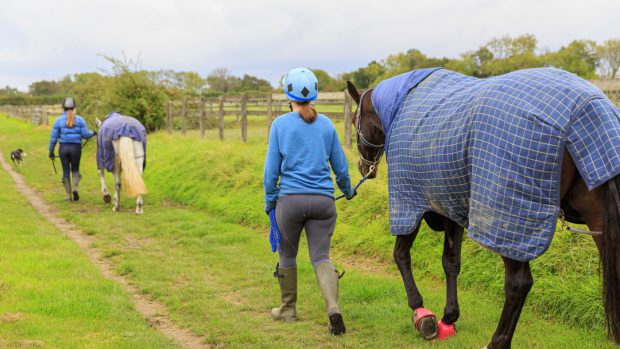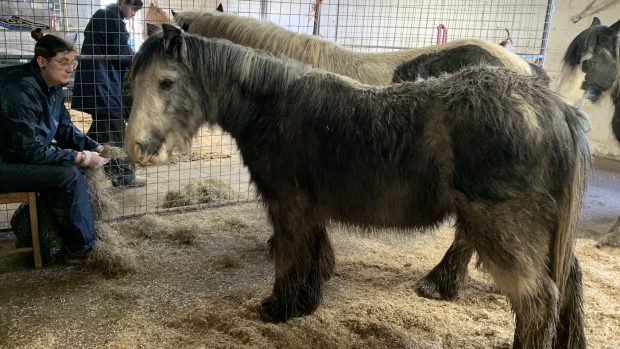The welfare of horses suffering from skin disease could be suffering as owners turn to social media and “Dr Google” before they consult their vets, an expert has warned.
Equine skin disease is common but veterinary dermatology specialist Sue Paterson is concerned that some more serious issues are being misdiagnosed after owners search for answers online, rather than seeking prompt and appropriate treatment.
Dr Paterson said her telemedicine company Virtual Vet Derms has seen a “persistent increase” in enquiries about equine parasitic skin disease since its formation in 2018.
“Diseases such as sarcoptic mange, which is carried by foxes, and chorioptic mange appear to be more prevalent, yet market research shows that in many cases a visit to the vet is a last resort and people go to Dr Google or Facebook first, which is worrying,” she said.
Dr Paterson added that it is important that parasitic skin diseases are diagnosed early so they can be treated before the condition escalates and spreads. This will benefit horse welfare, as well as saving owners’ money.
“If you search ‘itchy horse’, you will pull up some useful equine sites for information,” she says. “But you will also find lots of sites selling products that desperate owners will purchase before getting advice on the cause of the horse’s skin problem.”
H&H vet Karen Coumbe said she “absolutely agrees” with Dr Paterson on this “perennial problem”.
Continues below…

Warnings over use of wormers to treat headshaking
Riders have been advised against a treatment being promoted on social media and in forums

‘Vital’ painkiller available again — but government stance questioned
Sales of the painkiller were suspended without consulting vets

Subscribe to Horse & Hound this spring for great savings
“There are a multitude of examples of conditions where Facebook advice is a poor substitute for a proper professional veterinary consultation, but I would suggest skin diseases are a classic example,” she said, adding as an example that she has seen outbreaks of ringworm, which affects humans as well as horses, misunderstood online.
“Another example is inappropriate remedies being recommended via Facebook, for instance, Dr Derek Knottenbelt was very fond of using the example of people using toothpaste to treat sarcoids as they had learnt that online even though it was a daft idea,” she said.
“Above all, people need to be aware that one individual anecdotal case example report by an anonymous keyboard warrier is no substitute for proper clinical evidence.”
We continue to publish Horse & Hound magazine weekly during the coronavirus pandemic, as well as keeping horseandhound.co.uk up to date with all the breaking news, features and more. Click here for info about magazine subscriptions (six issues for £6) and access to our premium H&H Plus content online.





